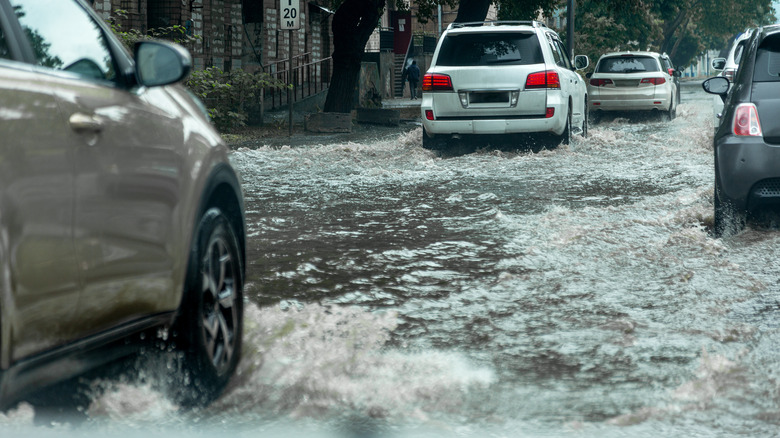The Latest Scientific Prediction That Makes 2030 Feel Even More Eerie
Flooding has been a threat to humanity for as long as permanent settlements have existed. Stories such as that of the biblical flood for which Noah built the Ark exemplify the visceral fear that such an events have brought. Meanwhile, recent occurrences, such as the devastating flood waters which overtook New Orleans during Hurricane Katrina, and Indonesia during the 2004 Indian Ocean tsunami, show that even with 21st century preparation, floods can still destroy whole communities.
Often floods are thought of as being the natural consequences of tsunamis or hurricanes. While they often are, it is crucial to point out that the moon, whose gravity creates Earth's tides, can itself be a direct cause. Any change in the moon's orbit can have dramatic consequences for how the Earth's waters behave, and as the Smithsonian reports, the moon's orbit is expected to "wobble" in the 2030s. Should this happen, regular coastal flooding is expected to occur throughout the world during the three months the moon is closest to us.
The volume of global flooding is expected to skyrocket by the 2030's
The type of flooding that experts believe will occur is called "nuisance" flooding, which as the name suggests is not an event on par with the previously mentioned natural disasters. Rather, it is minor flooding that can nevertheless render infrastructure such as roads and subway lines unusable (via National Ocean Service). Though more manageable at the local level, such an event occurring all over the world for three months will lead to incredible economic damage.
During this time employees will be hampered in their daily commute, while international trade will need to adapt substantially if relative normalcy is to be maintained. For the United States specifically, the West and Gulf Coasts are expected to bear the greatest impact, along with Hawaii and the U.S. overseas territories. Although coastal regions across the world have made progress in flood prevention and management, with countries like the Netherlands having a long history of successful water management (via ThoughtCo.), there is genuine concern that the moon's effect on rising sea levels will outpace their efforts (via NPR).

